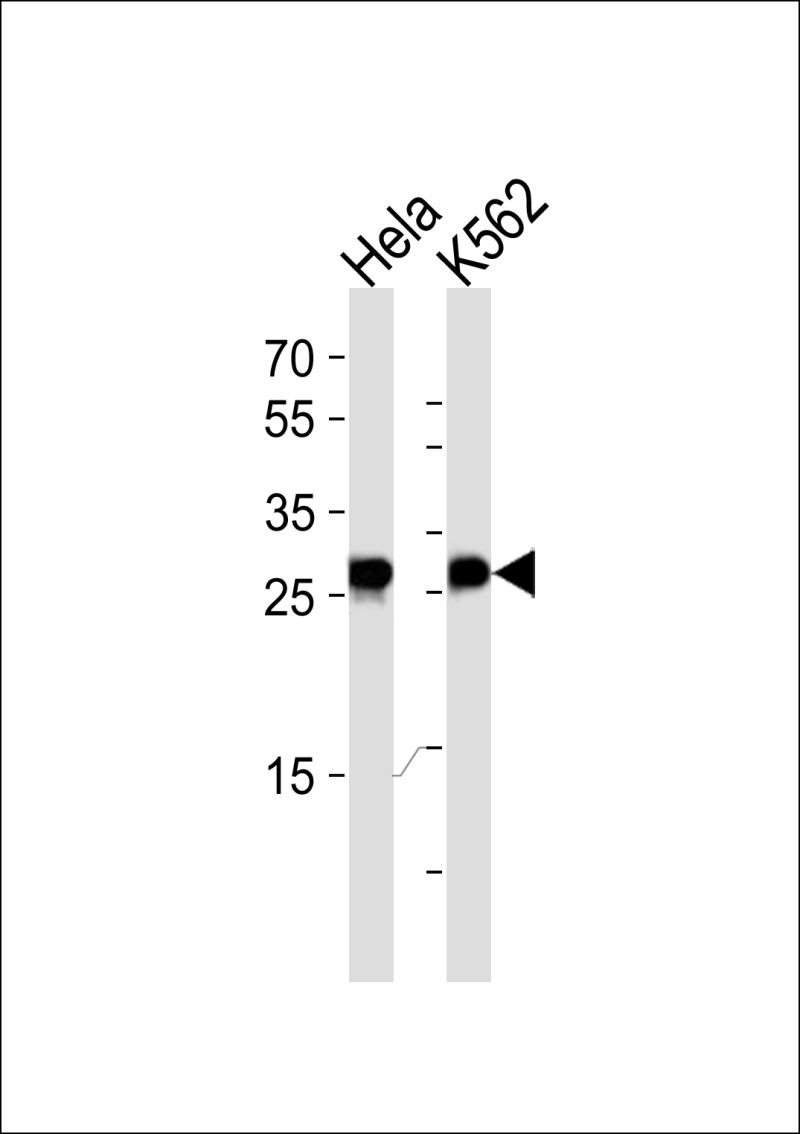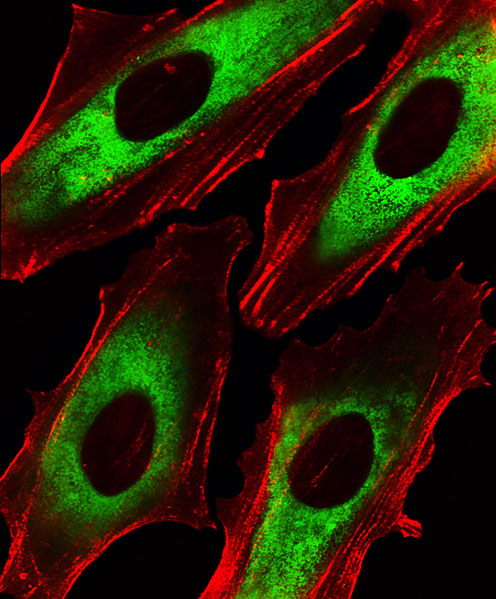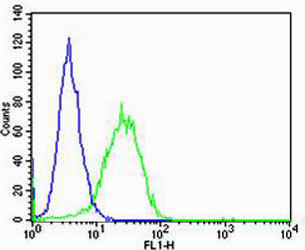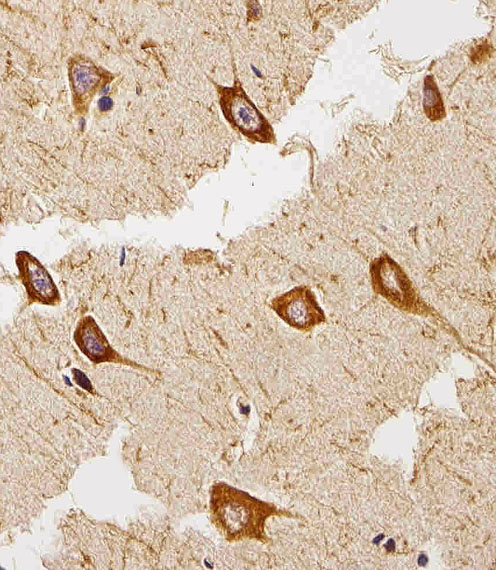



| WB | 1/1000 | Human,Mouse,Rat |
| IF | 咨询技术 | Human,Mouse,Rat |
| IHC | 1/100-1/500 | Human,Mouse,Rat |
| ICC | 1/25 | Human,Mouse,Rat |
| FCM | 1/25 | Human,Mouse,Rat |
| Elisa | 咨询技术 | Human,Mouse,Rat |
| Aliases | Elongation factor 1-beta, EF-1-beta, EEF1B2, EEF1B, EF1B |
| Entrez GeneID | 1933 |
| WB Predicted band size | 24.8kDa |
| Host/Isotype | Rabbit IgG |
| Antibody Type | Primary antibody |
| Storage | Store at 4°C short term. Aliquot and store at -20°C long term. Avoid freeze/thaw cycles. |
| Species Reactivity | Human |
| Immunogen | This EEF1B2 antibody is generated from a rabbit immunized with a KLH conjugated synthetic peptide between 54-86 amino acids from the Central region of human EEF1B2. |
+ +
以下是关于EEF1B2抗体的3篇参考文献(虚构示例,仅供格式参考):
1. **文献名称**: *EEF1B2 overexpression promotes tumor progression and correlates with poor prognosis in colorectal cancer*
**作者**: Zhang L, et al.
**摘要**: 研究通过免疫组化分析发现,EEF1B2在结直肠癌组织中高表达,其表达水平与患者生存期负相关。抗体特异性验证显示,EEF1B2可能通过激活PI3K/AKT通路促进肿瘤侵袭。
2. **文献名称**: *Characterization of EEF1B2 antibody specificity in neuronal cell models*
**作者**: Smith J, et al.
**摘要**: 利用siRNA敲低和Western blot技术验证了商用EEF1B2抗体的特异性,确认其在阿尔茨海默病模型中可检测EEF1B2的异常聚集,提示其与tau蛋白病理相关。
3. **文献名称**: *Subcellular localization of EEF1B2 isoforms using epitope-specific antibodies*
**作者**: Tanaka K, et al.
**摘要**: 通过开发针对不同EEF1B2异构体的特异性抗体,揭示其核质穿梭功能,并发现磷酸化修饰影响其在细胞周期调控中的作用。
**Background of EEF1B2 Antibody**
The EEF1B2 (Eukaryotic Translation Elongation Factor 1 Beta 2) antibody is a tool used to detect and study the EEF1B2 protein, a subunit of the eukaryotic elongation factor-1 complex (eEF1). This complex plays a critical role in protein synthesis by facilitating the delivery of aminoacyl-tRNA to ribosomes during translation elongation. EEF1B2. specifically, functions as a guanine nucleotide exchange factor (GEF) for EEF1A, promoting the exchange of GDP for GTP to reactivate EEF1A for subsequent translation cycles.
EEF1B2 is ubiquitously expressed, particularly in tissues with high metabolic activity, and is implicated in cellular processes beyond translation, including cytoskeletal regulation, apoptosis, and cancer progression. Dysregulation of EEF1B2 has been linked to cancers (e.g., hepatocellular carcinoma, colorectal cancer) and neurological disorders, making it a biomarker of interest.
Antibodies against EEF1B2 are widely utilized in techniques like Western blotting, immunohistochemistry (IHC), and immunofluorescence (IF) to analyze its expression levels, localization, and interactions. These antibodies are often validated for specificity using knockout cell lines or siRNA knockdowns. Commercially available EEF1B2 antibodies may be monoclonal or polyclonal, with target epitopes spanning different regions of the ~38 kDa protein. Their applications extend to both basic research and clinical studies, particularly in exploring mechanisms of oncogenesis and therapeutic targeting.
×